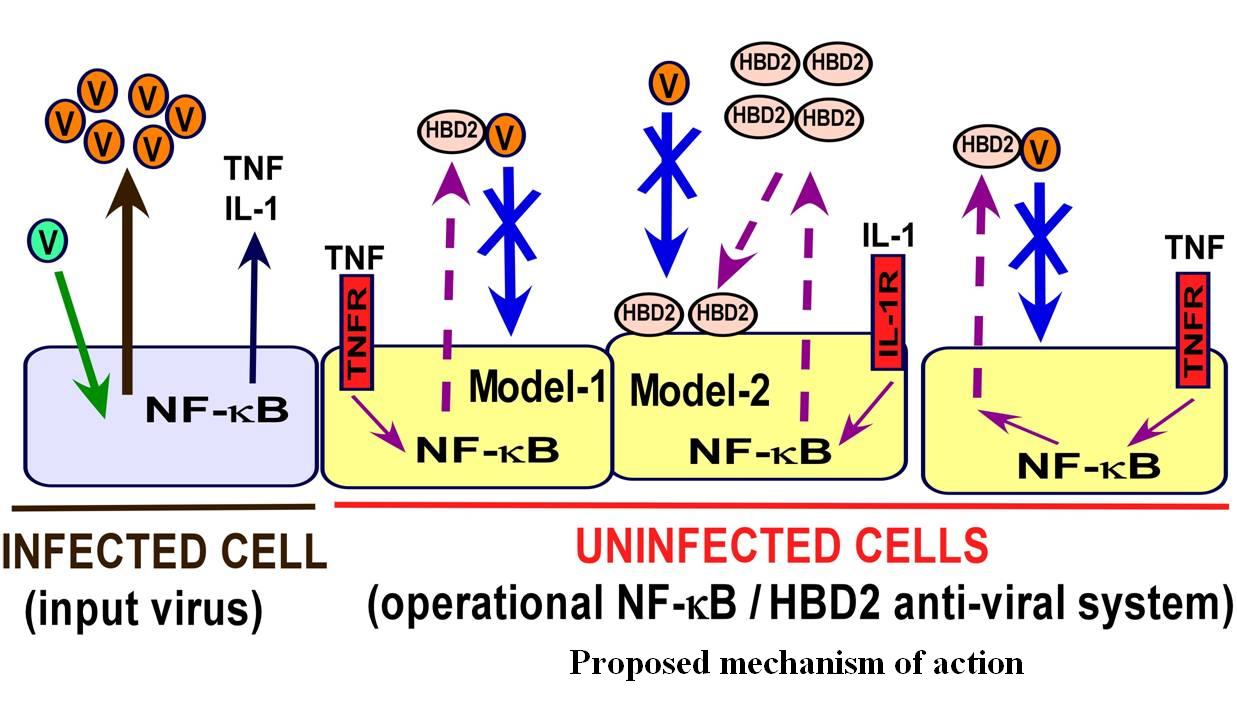ABSTRACT: 0752
Role of human beta defensin-2 in mucosal innate anti-viral response
| A. SABBAH1, S. KOTA1, and S. BOSE2, 1University of Texas - San Antonio / Health Science Ctr, USA, 2University of Texas - San Antonio / Health Science Ctr, San antonio, USA |
Objective: RSV is a highly pathogenic virus that may enter the body through the oral cavity and infect lung epithelial cells. Our objective is to demonstrate the role of human beta-defensin-2 (HBD-2) in NF-kB dependent innate anti-viral response in mucosal cells. Method:1)A549 cells were treated with TNFa or RSV for 8h and 16h and HBD2 gene expression was examined by RTPCR. The experiment was repeated in mice, RNA was extracted from lungs and mouse beta-defensin-4 (HBD2 homolog) levels were examined by RTPCR.2)A549 cells were pretreated with HBD-2 then infected with RSV. Viral titer was measured 36hpi.3)A549 cells were pretreated with HBD-2 then infected with S-35 RSV for 4h. Viral entry was measured by counting lysates in a scintillation counter.4)HBD-2 gene was silenced in A549 cells followed by RSV infection. Viral titer was measured 36hpi. Results: HBD-2 is induced by RSV and TNFa in vitro. Our in vivo experiments show that mBD-2 is induced by RSV. In addition, HBD-2 possesses potent anti-viral activity against RSV by inhibiting cellular entry of RSV. Finally, HBD-2 is a critical innate anti-viral molecule during NF-kB mediate mucosal anti-viral response. Conclusion: We have identified HBD-2 as a novel anti-viral factor that operates during innate immune anti-viral response in mucosal epithelial cells. Our studies have demonstrated that HBD-2 is produced by the NFkB pathway and inhibits viral infection by inhibiting viral entry into cells. HBD-2 is secreted from various mucosal cells including oral epithelial and lung epithelial cells, and therefore body fluids like saliva and bronchioalveolar lavage are highly enriched with HBD-2. Since HBD-2 is one of the major anti-microbial proteins in saliva, it may confer anti-viral action against RSV present in the oral mucosa, thus limiting its spread. NIH COSTAR grant T32DE14318 |
| Seq #116 - Immune Mechanisms and the Oral Cavity 1:30 PM-2:30 PM, Friday, April 4, 2008 Hilton Anatole Hotel Trinity I - Exhibit Hall |
|
Back to the Microbiology / Immunology and Infection Control Program |
©Copyright 2008 American Association for Dental Research. All Rights Reserved.
